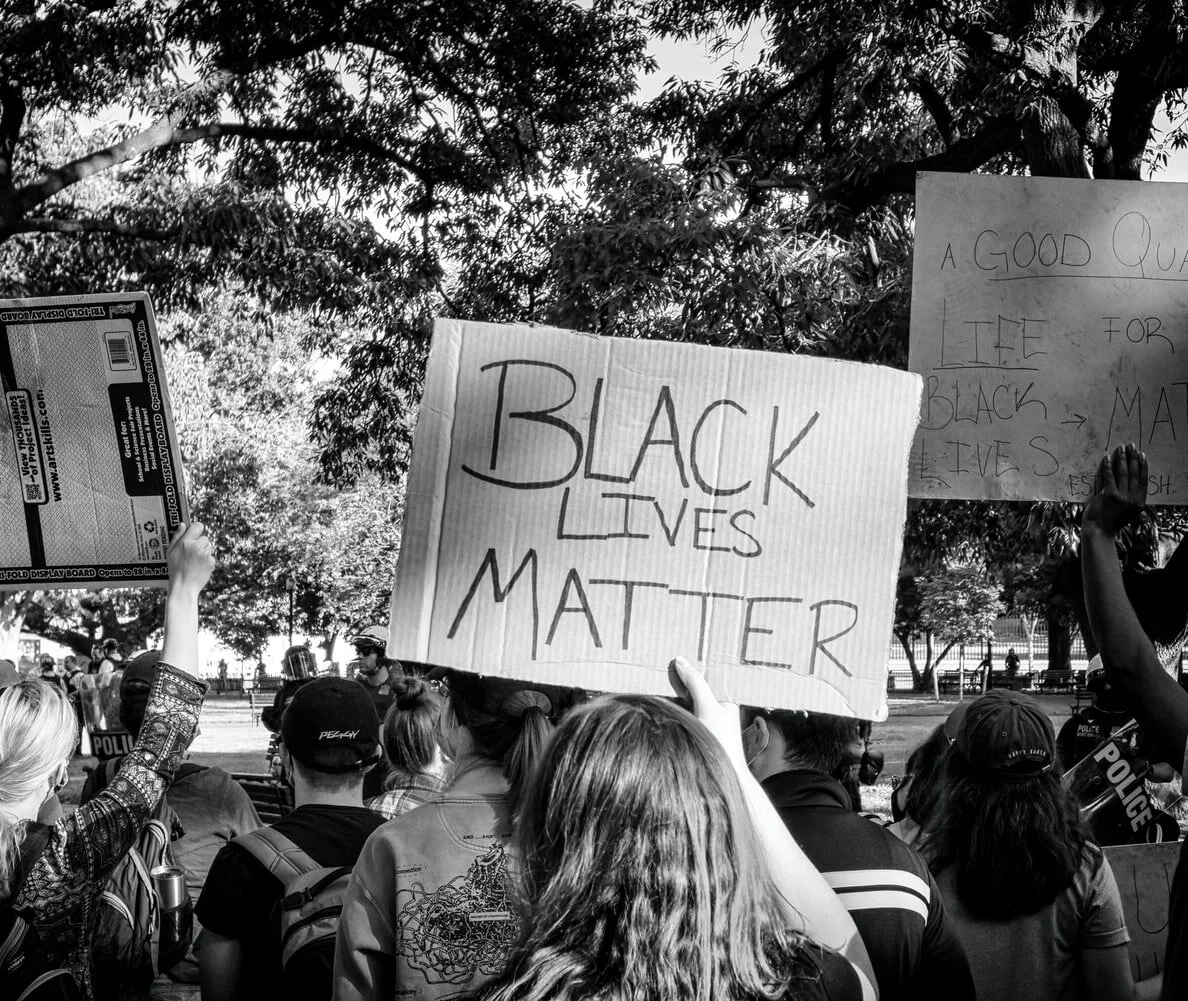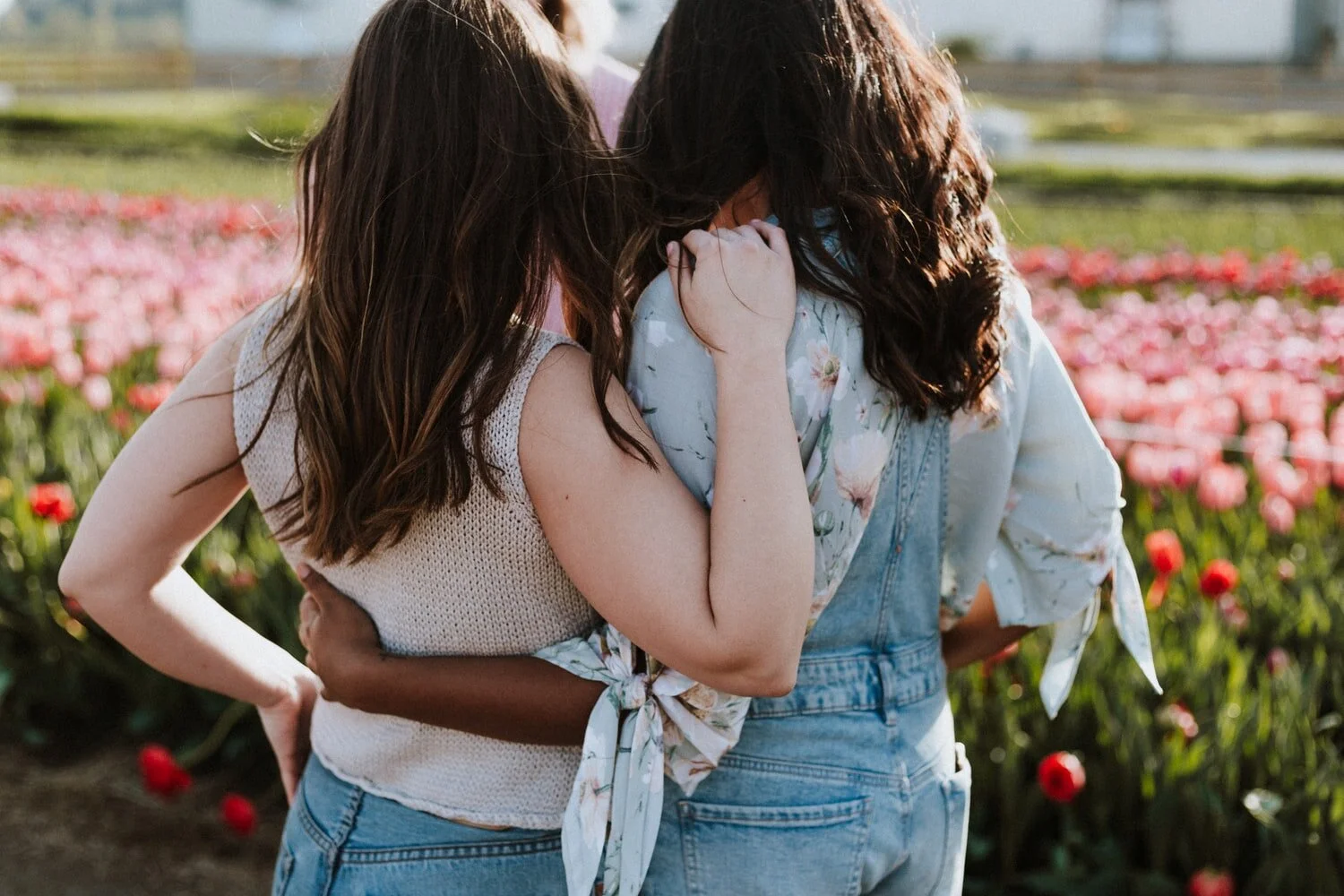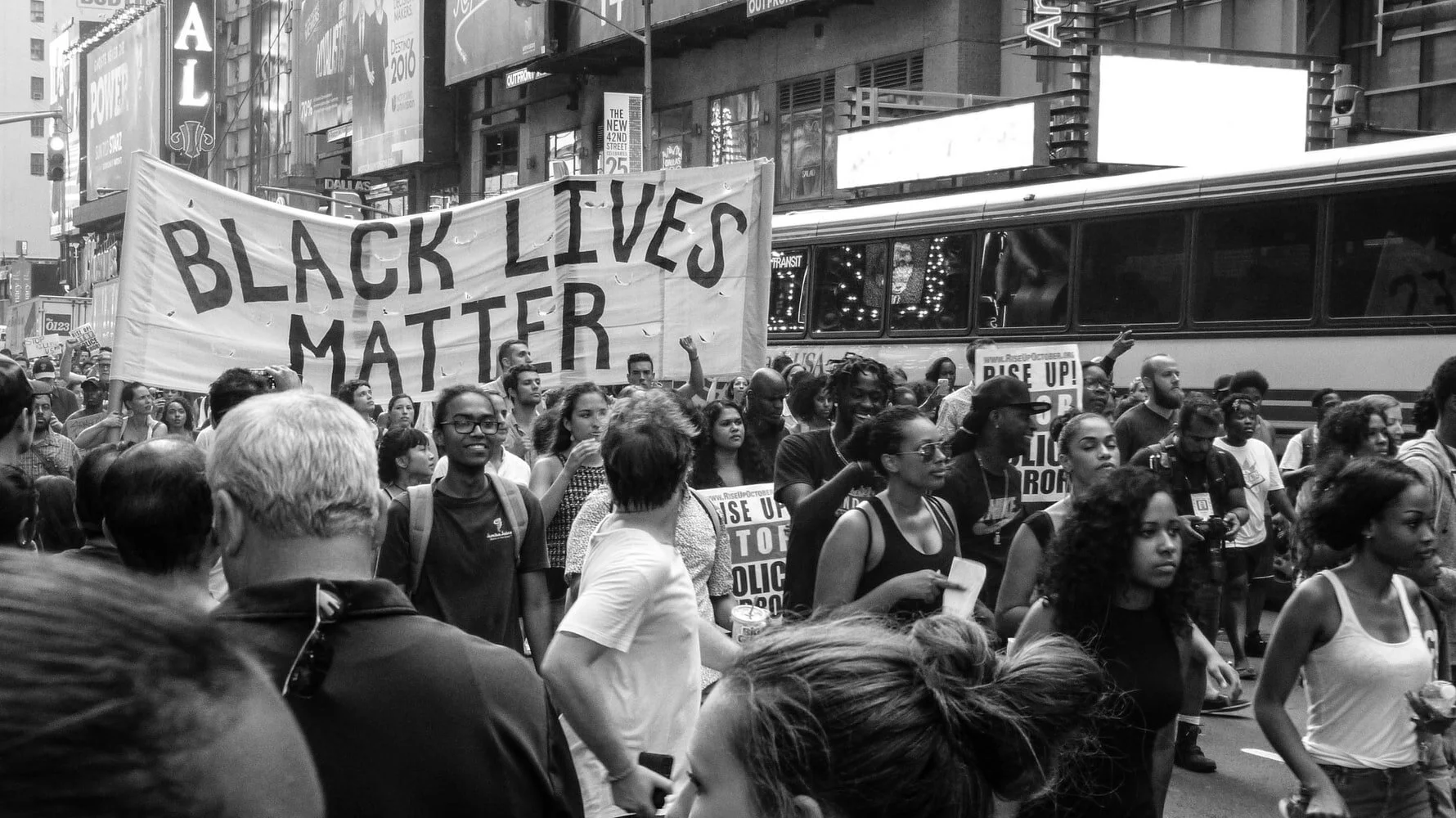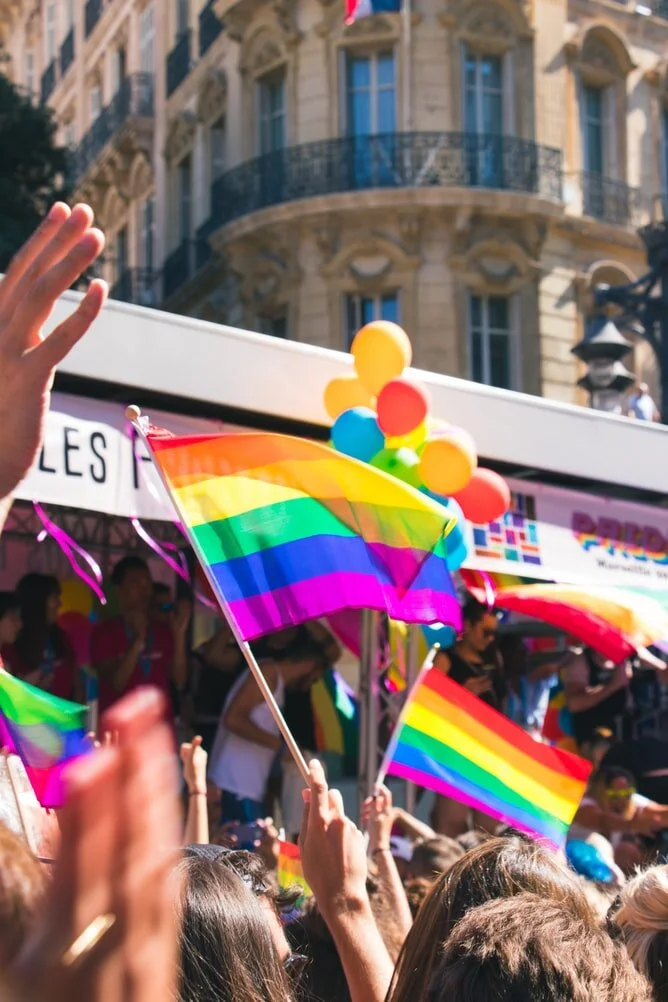If You're White, You Need To Read This: Part Two
TRIGGER WARNING: RACISM, RACIAL VIOLENCE & POLICE BRUTALITY
The Unedit cares about your wellbeing. Please read at your own discretion.
If you haven’t read Part One to this piece, you can do so here.
It’s been ten days since the death of George Floyd, and the subject of race and racism has never been so widely and heavily discussed in our modern day society. Protests and riots have taken place across America, the UK and beyond, pressuring elected officials, police commissions and governing bodies to act on police brutality and systemic racism.
Since Part One of this piece, written over a week ago now, there have been developments in the George Floyd case. Arresting officer Derek Chauvin was arrested later last week and charged with third-degree murder and manslaughter, but the remaining three arresting officers had yet to be arrested. Yesterday, Chauvin’s charge was upgraded to second-degree murder (the difference between second and third, ultimately, is intent), and the other three officers – J Alexander Keung, Thomas Lane, and Tou Thao – were arrested and charged with aiding and abetting second-degree murder and aiding and abetting second-degree manslaughter. If convicted, all four officers will face up to 50 years in prison. It’s doubtful that these further actions would have even been taken had it not been for the week-long unrest across America, which has seen military and National Guard forces being sent in to various cities to work alongside local police departments. When protests hit Washington D.C., the White House was pictured in complete darkness – something apparently only usually done as a result of the death of a president, or an extreme threat of danger.
I wasn’t planning to write a follow-up to my previous article, as I’ve been using the time over the past week to share anti-racism resources and amplify Black voices over on our social media. That being said, since the eruption of the protests, there have been a number of retaliations and responses from white folks that I think need to be addressed. If I were to go into each and every one of them, this article could most likely turn into a book, so I’m just going to take the most frequent ones that I’ve either seen or received repeatedly in response to the protests and the overall discussion of systemic racism. Much like I said before, I don’t have all the answers, nor do I have the room to dissect each of these responses entirely in a single article (additionally, if this article was long enough to completely dissipate every argument, I fear that the people who need to read it most will stop reading). That being said, I will be explaining to an extent why each of the following statements are obsolete – or just total trash.
“All Lives Matter!”
Ah, what a wonderful way to start this off. The most common response, across all social media, has undoubtably been the “all lives matter” thing. I’ve seen it trending on Twitter on more than one occasion in the past week or so, and whilst some were actively – and rightly – criticising it, there were more people using it whilst genuinely believing it’s correct. Let me tell you why it’s wrong: because all lives cannot matter until Black lives matter. It’s a pretty simple explanation. The “all lives matter” rhetoric has been something continuously used to undermine the Black Lives Matter movement since its inception, by white folks who are hurt that white lives are being overlooked as a result. The thing is, they’re really not. In comparison, white lives are practically smooth sailing through life, whilst Black lives are being brutalised and killed on an all too regular basis. Never at any point did anyone say that only Black lives matter. All lives matter, but right now, all lives are not where our focus should be. We should be directing our attention to Black lives. That’s not to say that there aren’t other issues that need to be addressed, but the most pressing, most dangerous ones right now are directly impacting – and killing – Black people, and so these issues are the ones that need to be dealt with immediately.
If you need the help of an analogy, there’s been a great illustration by Kris Staub from 2016 that’s floating around social media at the moment. It perfectly depicts the idea of “all lives matter,” with a house on fire whilst someone hoses down a house that’s not burning, claiming that “all houses matter”. Perhaps consider that if you used “all lives matter” rather than “Black lives matter,” you might actually be the one in the wrong. And if you still believe that “all lives matter” takes precedent, perhaps consider that you might actually (definitely) be a racist.
“I agree with the protests, I just don’t agree with the violence.”
There are many, many layers to this, but I’m only going to touch on a handful of them. With these protests, there have been riots and looting. Remember that protests started because people are angry. They’re angry, they’re hurt, they’re heartbroken, and they’re desperate for justice. As we should all be (as I said before, if you’re not, ask yourself why). Take that raw anger and pain, combine it with the 400+ years of oppression, hundreds of Black people dead at the hands of police officers, and a system that continuously works against them. Can you honestly say you’re surprised that there’s violence? You can’t claim that white people wouldn’t do the same if the shoe were on the other foot because – guess what? – white people have never been in such a situation. How can they have been, when the system that they’ve been living in for centuries continuously works in their favour?
The protests are about fighting for change, and history serves as a great reminder that riots can get you there. The 1969 Stonewall riots are widely recognised as being one of the largest catalysts for the gay liberation movement and the progression of LGBTQIA+ rights in the United States. There have also been many other riots whose outrage and destruction fuelled change that otherwise wouldn’t have happened. Sometimes, you just have to admit that these kinds of actions are the only way to truly force impact.
The media, especially right-leaning outlets, have highlighted these riots and lootings and distributed them around the world under headlines. This coverage is derailing the peaceful action taken by protestors, and exacerbating the narrative that Black people are criminals and animals. A protest turning violent should not and cannot eradicate the purpose, principles and intentions of the reason for its existence in the first place. Each circumstance began as a peaceful protest, until police chose to start using excessive force. There are hundreds, if not thousands, of videos online that clearly show peaceful crowds descending into chaos as police retaliate – unprovoked – with tear gas, rubber bullets, and even ramming protestors with their vehicles. Protests against police brutality are being met with police brutality, so violence has become unavoidable. The important thing to remember is that violence has only come as a result of provocation.
In addition to police retaliation, hundreds of videos from cities across America have emerged showing white groups – Antifa, KKK, white supremacists and so on – taking advantage of the circumstances and instigating a large amount of looting and criminal damage. Videos show them smashing in windows, damaging corporate properties, using graffiti and starting fires whilst Black protestors plead with them to stop. These white groups leave before the media arrive to document the damage, leaving the world to falsely believe that Black protestors are the ones behind it all. Corrupt police departments have been recorded planting various things (such as bricks) in the path of protestors, encouraging them to turn violent to validate their reasons for using ultra-agressive tactics. Fake videos have also circulated after being released by anti-Black groups in an attempt to spread outrage and further incite riots and violence.
It seems to be the looting more specifically that bothers most white people. Their prioritising of buildings and businesses over what people are fighting for – justice, civil rights, human rights – shows that property and the safety of it holds more importance to them than Black lives and the safety of them. It’s disgusting. Yet, due to their privilege, lack of education or acknowledgement of their colonising past, most white people don’t realise that we are the biggest looters of all. America was born on stolen land, with white folks using genocide as a tool to eradicate indigenous tribes. They then used stolen people from Africa as slaves, making them build America for free. They opened museums and exhibitions displaying stolen artefacts from lands and near and far. Looting has been a tool of oppressors for centuries, and now – because a local Target has been looted – Black people are the problem? It’s minuscule in comparison.
Some people are using out of context Martin Luther King Jr. quotes to invalidate the protests’ core meaning and the fight for justice. Many people are comparing Dr King’s peaceful marches and messages to that of the unrest that many cities in the US have been seeing in the past week or so. But what they’re forgetting about Martin Luther King Jr. amidst all this is that he, too, was assassinated by a white man. Peaceful protests do not stop people from being killed. If peaceful protest truly worked, would black lives still be endangered these 50-odd years after Dr King’s assisination? Martin Luther King Jr. was anti-riot, but argued that riots should not be condemned whilst the treatment and socioeconomic conditions of Black people isn’t. In his 1967 “Other America” speech, Dr King said, “A riot is the language of the unheard.” And whilst Black people continue to fight for justice against a racist system, they are the unheard. Oftentimes, you find that those who call for peaceful action stand for it not for the cause or safety of those protesting, but for their own comfort, and that in itself speaks volumes.
One of the most important things to take away from this is that white people have absolutely no right to tell Black people how to react or respond. As white people, we don’t have even the vaguest idea of their lived experiences, the trauma they’ve suffered, the pain that systemic racism continues to cause. Therefore, it’s not your place to condemn, criticise, or question their methods of protest.
“How is white silence any worse than black silence?”
This was something I received in my DMs and comments on a number of occasions in response to talking about white silence and its dangers. Quite simply, white silence is deadly, Black silence is not. Technically, there’s no such thing as Black silence. Black people – Black communities – are tired. The fight against systemic oppression has been something that they have endured generation after generation; Black people have fought alone for far too long, and the assumption that they have to always be the ones spoon-feeding white people and teaching them basic human rights is anti-Black in itself. Black people are allowed to say as much or as little as they want. They are allowed to rest. They are allowed to protest. They are allowed to not protest. Their responses to this are all valid and are not up for scrutiny. I’ve said it before and I’ve said it again, but white people have to pull up, learn, unlearn and put in the work themselves, not off the back of Black people who are already exhausted. If you’re feeling exhausted now – a week in to anti-racist work/education/discussion for many of you – imagine what a lifetime of that feels like when you can’t opt in and out of experiencing it or caring. Black people owe you nothing.
“I don’t have white privilege; I’ve had a really hard life.”
White privilege is not about whether you’ve had a hard time in life or not. You could have had some of the most extreme traumas and tragedies plague your life, but as long as your skin is white, you have white privilege. This kind of privilege is not about the hardships in your own personal life. This privilege is something that comes excluding all other kinds of factors. Poor and white? Fat and white? Disabled and white? Trans and white? Queer and white? Whatever the case may be, you still have white privilege. White privilege means that the colour of your skin doesn’t impact your day to day life, and you actively benefit from the systemic oppression that works against black people and people of colour. White privilege means you’re more represented in the media, you’re surrounded by more people that look like you, you’re more likely to make more money. White privilege also means you’re less likely to be turned down for a job, less likely to be stereotyped, and less likely to be stopped, searched or killed by police. The systems in place and the powers that be benefit you because you’re white. Your whiteness has laid a certain groundwork for your life that you wouldn’t necessarily have access to if you didn’t have it. People don’t ask you to feel guilt about the fact that you have white privilege; they ask you to acknowledge it and the advantages that it gives you in life, and use it to help those who don’t have those same advantages. If you need to understand further how systemic racism benefits white people, watch this video as it breaks it down perfectly.
“But what about Lee Rigby? We didn’t protest his death.”
I can’t really speak for the US in this situation, but I’ve seen a number of arguments comparing the death of George Floyd and the subsequent action taken to murders such as that of Lee Rigby, the British soldier who was killed seven years ago by two Black men. This argument has been used by many to further their own racist agendas and in an attempt to be divisive, doing so by specifically highlighting cases where white people have been murdered by Black people, immigrants and muslims. The murder of Lee Rigby is in very different circumstances to that of the murder of George Floyd. Rigby was murdered by two men in a terroristic act, both of whom were tried, convicted and will spend the rest of their lives in jail. George Floyd was killed by a police officer – someone who is sworn to serve and protect all members of the public. Unlike the other murders that people attempted to compare, where killers have been caught and convicted, no police officers who are responsible for any of the hundreds of Black deaths have been brought to justice. George Floyd’s death is not a one-off – it’s systemic. It is for that reason, amongst many others, that there is quite frankly no comparison.
People are protesting not because a man has been murdered, but because a man has been murdered at the hands of someone who was supposed to be keeping him safe. People are protesting because hundreds of murderers have been able to hide behind their police badges and avoid any punishment or accountability. People are protesting because police departments and commissions have allowed it to continue happening. If you still can’t seem to distinguish the difference, nobody needed to protest the murder of Lee Rigby because justice was served. There is yet to be justice for George Floyd, and that is why the protesting is so necessary.
I’ll repeat it again: I don’t have all the answers. 2020 will be a significant milestone in the fight for civil rights and justice, and the fight to end police brutality and dismantle systemic racism. Reiterating the general consensus of Part One: get to work. Watch, read, and listen to things that make you uncomfortable. Confront your internalised biases. Take action and be actively anti-racist. Do the right thing. This is our problem to fix. We built this system, and we are the ones who will have to do our part to make sure it’s ripped apart brick by brick. Black people can’t be expected to bring down systemic racism when they didn’t create it in the first place. That’s on us.
I’ll leave you with one last question: looking at yourself and your actions right now, are you going to be able to tell your grandkids that you were on the right side of history?







